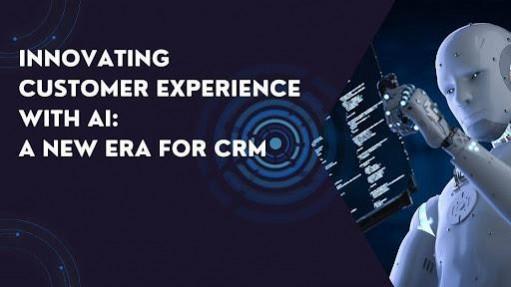
In today's dynamic world, Artificial Intelligence (AI) has revolutionized the way businesses manage customer relationships, pushing the boundaries of traditional Customer Relationship Management (CRM) systems. The advancements in AI integration, particularly in systems like Salesforce Einstein, have been instrumental in improving predictive analytics, enhancing personalized customer experiences, and optimizing business processes. This article penned by Adisheshu Reddy Kommera, explores the innovative ways AI is transforming CRM systems, offering insights into its predictive capabilities and future potential.
AI at the Core of CRM Evolution
The integration of AI into CRM, exemplified by Salesforce Einstein AI, has revolutionized customer interactions. Combining machine learning, natural language processing (NLP), and predictive analytics, Einstein AI enhances decision-making by anticipating customer needs and improving operational efficiency. Its predictive engine processes historical data to forecast customer behavior, enabling businesses to identify high-potential leads, reduce churn, and optimize sales forecasts. By analyzing vast data sets, Einstein AI empowers businesses to make informed, data-driven decisions, offering insights beyond traditional CRM systems' capabilities.
Enhancing Customer Interactions
Salesforce Einstein AI enhances customer interactions through personalization by analyzing data like purchase history and browsing behavior to provide tailored product recommendations. This boosts customer experience, increases sales, and raises conversion rates and order values. Additionally, its natural language processing improves customer service with intelligent case routing, matching inquiries to agents based on expertise and availability. This leads to quicker resolutions, reducing customer frustration and increasing satisfaction, ultimately improving overall efficiency and service quality for businesses.
Predictive Capabilities: Sales and Customer Retention
Salesforce Einstein enhances business forecasting by analyzing pipeline data, past performance, and market trends to provide accurate sales predictions. This helps businesses optimize resource allocation, strategic planning, and inventory management by anticipating fluctuations. Additionally, Einstein AI excels in predicting customer churn by evaluating engagement, support history, and other key factors. It identifies at-risk customers and suggests retention strategies, reducing churn and boosting customer loyalty. This proactive approach improves long-term revenue growth, making Einstein AI a powerful tool for both forecasting and customer retention.
Intelligent Automation: Streamlining Business Operations
Einstein AI automates repetitive tasks, enabling employees to focus on strategic work. A key feature is its chatbot functionality, which handles routine customer inquiries like order status checks or product information requests. This reduces the workload on human agents and provides customers with immediate assistance, improving their experience. The system's machine learning capabilities allow it to learn from new data, enhancing its accuracy and decision-making. This self-learning ability ensures the CRM system adapts to evolving customer behaviors and market trends without requiring manual updates.
Overcoming Challenges: The Road Ahead
Integrating AI into CRM brings significant benefits but also challenges. Businesses face issues like data quality, privacy concerns, and the complexity of merging AI with existing systems. High-quality data and strong governance are essential for accurate AI predictions. Additionally, ongoing training and maintenance of AI models are vital to ensure optimal performance. User adoption plays a critical role in success employees must trust AI recommendations and feel comfortable with the technology. Training programs and demonstrating value can help overcome resistance and ease the transition to AI-powered workflows.
In conclusion, as AI technology advances, its impact on customer relationship management (CRM) grows increasingly crucial. Tools like Salesforce Einstein AI provide businesses with a competitive edge by enhancing customer insights, sales forecasting accuracy, and operational efficiency. Adisheshu Reddy Kommera's insights highlight AI's transformative potential in CRM, emphasizing its role in shaping future customer-centric strategies. While challenges persist, the benefits of integrating AI into CRM far outweigh the obstacles. AI-driven solutions boost customer experiences, streamline operations, and drive long-term business growth in today's competitive market.

















